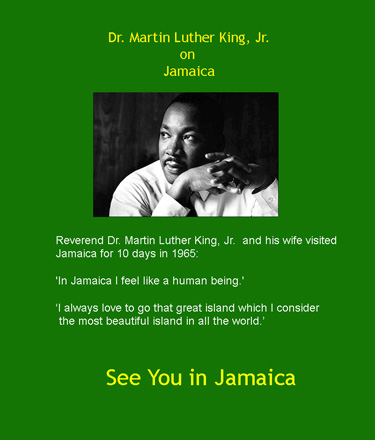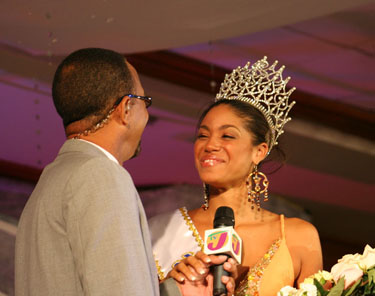
The movie,
The Harder they Come, is the 2nd or 3rd longest running film in the history of American Cinema. This film was directed by
Perry Henzel, who died at age 70 in December 2006. (RIP Perry). The movie ran for seven years straight at the Orson Welles Theater, in Boston, Massachusetts, USA.
Jeremy Sigler, of
Index Magazine, interviewed Perry Henzell at his home in Jamaica in 2001. Here is the full interview from Index Magazine. We found this interview to be both refreshing and inspirational. Make sure you read it all. Big up
Jimmy Cliff and Index Magazine:
Perry Henzell, 2001, by Jeremy Sigler, of Index Magazine After directing The Harder They Come in 1973, Perry Henzell spent the next six years single-handedly distributing his "little action film" all over the world. Starring Jimmy Cliff as an aspiring musician just arrived in the slums of Trenchtown and willing to succeed by any means necessary, the movie brought the energy and strife of the Jamaican music scene to life for audiences everywhere. The best-selling soundtrack was an immediate reggae classic: it featured Cliff, Toots and the Maytals, and Desmond Dekker. As American college kids lined up in droves to see the movie, Perry remained in Jamaica, where he was born and raised, eventually taking up residence in a long-abandoned eighteenth-century stone villa, set deep in the bush on the northern coast.
After directing The Harder They Come in 1973, Perry Henzell spent the next six years single-handedly distributing his "little action film" all over the world. Starring Jimmy Cliff as an aspiring musician just arrived in the slums of Trenchtown and willing to succeed by any means necessary, the movie brought the energy and strife of the Jamaican music scene to life for audiences everywhere. The best-selling soundtrack was an immediate reggae classic: it featured Cliff, Toots and the Maytals, and Desmond Dekker. As American college kids lined up in droves to see the movie, Perry remained in Jamaica, where he was born and raised, eventually taking up residence in a long-abandoned eighteenth-century stone villa, set deep in the bush on the northern coast.
Perry comes from an old Carribbean family. Yet he has always gone out of his way to break tradition: as a young man he hitch-hiked his way through Europe while he was supposed to be at an English boarding school; on returning to Jamaica he filmed the first-ever commercials to feature black actors; and later he took on prison reform, speaking out against the brutal whippings that were still practiced there. When we arrived at his home one tropical winter evening, the doors and shutters were swung wide open, candles were burning (due to a power outage), and our conversation was backed by the steady rhythms of cicadas, crickets, and tree frogs.
JEREMY: Wow, we're pretty far out here.
PERRY: Yeah, most of my neighbors are small farmers. You know, rastas.
JEREMY: Do you get many visitors?
PERRY: People drop by. But usually it's just my wife Sally and me.
JEREMY: I've heard you calling each other Rudy. Is that as in "rude boy?"
PERRY: Yes, well there was a song out when we were making The Harder They Come called "Rudy Don't Fear." She began to call me Rudy because of that; I call her Rudy.
JEREMY: Jamaicans have a thing for nicknames.
PERRY: Very often people have two or three names. It's very much a living language. It changes every week.
JEREMY: Neville Livingston became Bunny Wailer, and was sometimes referred to as "the Rabbit" …
PERRY: And a guy with a limp, they'll call him "Up-down."
JEREMY: So how did you come to be a filmmaker?
PERRY: I started right at the bottom, shifting scenery at the BBC — it was live television in those days, the '50s. In '59 I heard that Jamaica was going to get television, and I went home to get in on the ground floor. But it was delayed until about 1965, so instead I made cinema commercials, which run before the movies. I set up a little studio.
JEREMY: That's how you got connected to the music scene?
PERRY: Yeah, well there was only one recording studio when I first started out, Federal Records. It was two-track. I'd spend hours there doing the soundtracks for the commercials, listening to the music and meeting the musicians. Coxsone Dodd, all those people were there.
JEREMY: That must have been incredible.
PERRY: Then when Jamaican independence was declared in 1962, the local newspaper set up a closed-circuit television system. I did the first shows, including a variety show at night. I used a lot of musicians, and gave them their first exposure to cameras and television production.
JEREMY: And that led to The Harder They Come.
PERRY: Well, by the time I'd made 200 commercials, I realized that I was using them to experiment with filmmaking. It was a great way to start out, because if I made a mistake it was only 30 seconds long, and it was anonymous. But at a certain point I'd learned as much as I was going to learn — every time I had to make a commercial I got sick, you know? So I set out to make a little action movie. That's how I thought of The Harder They Come — a little crime movie set in Jamaica.
JEREMY: I always thought of it as a ninja-gangster-western-documentary. [laughter]
PERRY: Well, I always had a kind of obsession with realism, people like Ken Loach or John Cassavetes. But I felt most realism was boring, in that it was about people who were very serious. I wanted to make realism lighter.
JEREMY: Were you influenced by cinema verité?
PERRY: I don't think I could ever have made a feature unless I did it with lightweight cameras and a small crew. I also realized I couldn't possibly write dialogue that was as good as what I heard people saying all around me. I was interested in capturing that poetry. That's sort of a cinema verité technique.
JEREMY: I read somewhere that you made the film without a script.
PERRY: No, I worked on the script for quite a long time. But I ran out of script and had to write some more. I kept running out of script and running out of money. By the end of the film I was shooting by myself — you know, a crew of one. As a matter of fact, the knife fight scene was shot in three different locations, 18 months apart, and half with a double for Jimmy.
JEREMY: I can't imagine a more perfect casting for your hero than Jimmy Cliff.
PERRY: Well, I wanted a singer, of course. And Jimmy seemed like the most receptive person to direction. He had an album at that time where, on the front, he faced the camera and looked very stylish and handsome. And on the back there was a profile shot, and he looked like a rasta. I thought, "If two angles of his face can produce that much difference …" That was the starting point.
JEREMY: He'd never acted before.
PERRY: No. And I wasn't looking for actors, I was looking for people who carried a particular spirit. I wanted to cast somebody who knew more about the role than I did. Jimmy had come to Kingston as a youngster to make a career in music and had gone through the process.
JEREMY: But he wasn't considered a rude boy himself.
PERRY: He wasn't the rudy type, but he certainly knew that life.
JEREMY: He's perfectly convincing as a country boy who comes to the city full of naive hope — his desperation is heartbreaking. I always think of the strange scene in which he's been shot, he's hiding from the police, and he tries to escape by swimming out to the big ship, missing it by the tiniest fraction.
PERRY: That was very brave of Jimmy. We were in a hurry because we didn't have the ship for very long — it was leaving port and could only slow down for half an hour. And where the ships leave the harbor, that's also where they throw out garbage, and there are sharks. And you know, Jimmy was not a particularly good swimmer.
JEREMY: Wow. Where did you find the other actors?
PERRY: Well, the guy who played Preacher, Basil Keane was his name, he was a dentist. He was a friend of Martin Luther King's and so on. He had this explosive personality, particularly when he was drinking. How he operated was, he'd have three dentist chairs set up. And he'd have music pounding away. He'd get all excited and go from one chair to the other and inject here and pull a tooth there and run up and down.
JEREMY: I can't imagine …
PERRY: I was supposed to shoot with him the first day, but he didn't turn up. I sent for him, and they said, "He's asleep." So I said, "Well, wake him up." An hour later he still hadn't appeared, so I sent for him again: "He's in the bath." I said, "Well, why didn't someone get him out of the bath?" They said, "He's asleep in the bath!" [laughter] So at two in the morning, I'm fast asleep and I hear this horn honking outside. I go out on the veranda, and there's Basil, drunk, arms wide open, spinning around and saying, "You ready baby? I'm ready, I'm ready." [laughter]
JEREMY: You also cast Toots and the Maytals. Toots was one of the biggest stars in Jamaica at the time.
PERRY: He's always had amazing energy, Toots. He doesn't seem to age. Years ago, I did a musical about Marcus Garvey, and Toots worked with me on it. He did one song called "Education, Education, Education, What Did You Learn Today?" He had so much creative energy that you'd have to finish a recording in one session, because during the break he'd move on to something totally new. I still have the tapes.
JEREMY: I'd love to hear those. Wasn't Garvey Jamaican?
PERRY: Yeah, but he had global influence — all the people who were at the head of the American Black Power movement had their origins in Garvey. He came up with the Black Zionism idea. He was a theatrical guy — a small, squat, black man with a great sense of humor. By 1922 he had five million followers. He even had his own army, and a marching band. And of course he had his top hat, and he dressed up as president of all black people everywhere, and rode around in a sort of topless carriage, saluting.
JEREMY: "Back to Africa."
PERRY: Paradoxically enough, the people that were most supportive of his idea were the white racists, who said: "Of course. Go back to Africa right away. Go right on." [laughter]
JEREMY: The Harder They Come must be one of the best-selling soundtracks of all time.
PERRY: Oh yes. Jimmy was always supposed to choose the music for the soundtrack, and we were coming up to the deadline. I was in London and so was he, so I said to him, "This is it. Will you put together the soundtrack?" And he said, "No." I went back to where I was staying and just went to bed for the entire weekend. I ran the film back and forth in my mind and wrote down every song that I thought would fit. So I ended up doing the whole mix that weekend.
JEREMY: How was Harder They Come first received?
PERRY: In America it settled into a very long run. I think it had the second or third longest run in American cinema history, in Boston at the Orson Welles Theater. It played in this one theater for seven years straight.
JEREMY: And outside the U.S.?
PERRY: It was incredibly difficult to distribute. I went to 43 countries, most of them two or three times. It took me six years to get it out.
JEREMY: So it was always a cult film.
PERRY: It's two movies really. It's a movie for people who are well-educated and who want a glimpse into another side of life. And then in the Caribbean and Africa and Brazil and so on, it would be for the poor, for people living in slums. The impact of Harder They Come on Jamaica was enormous.
JEREMY: They responded to the film's anthem, "You Can Get It If You Really Want."
PERRY: Well one of the themes of Harder They Come was that the transistor radio had reached out into the countryside with a promise of riches in the city. And all over the world millions of youngsters came into the city for that dream. It was an illusion, of course. But Jimmy Cliff's character, he'd rather die than give up the dream. And they could relate.
JEREMY: The Kingston premiere must have been incredible.
PERRY: There's no excitement in a theater like people who are seeing themselves for the first time. And Harder They Come was the first time that West Indians had ever seen themselves or their story on screen. The first night was like an explosion. There were thousands of people. You couldn't see the end of the crowd surrounding this huge theater in the middle of Kingston. They beat the doors in, and when there were three people in every seat, we ran the film. [laughter]
JEREMY: You had no idea how far the film would go.
PERRY: Nobody could have predicted that Jamaican culture and music would resonate around the world in the way that it has. I think the scene with Pedro flicking back his hair from the water was the first image of rasta seen outside Jamaica, and it became a worldwide image. A year and a half after The Harder They Come started running in Boston, Bob Marley and the Wailers came there to do their first concert outside of the Carribbean. And that show was like an explosion again. It drew on the film audience, and the whole reggae thing got carried into another dimension. The film and Bob's music fed off each other all around the world.
JEREMY: Jimmy Cliff was never quite as big as Marley in the United States.
PERRY: Well, Jimmy made a big miscalculation, I think. He didn't pursue his Harder They Come image. It was really Bob who picked up on that and carried it. Jimmy has tried a lot of things, and right after the movie he got into a black Muslim thing. In fact, on the album that he released after Harder They Come, he was wearing a suit and tie and carrying a briefcase, and he had sort of close-cropped hair.
JEREMY: I guess he didn't style himself in the film then.
PERRY: The credit for that has to go to my wife, Sally. She was the art director on most of the commercials I made, and on Harder They Come.
JEREMY: Jimmy's star of David shirt stands out.
PERRY: The whole business of Jewish slavery really resonates with the black man in the West. The Old Testament has a huge influence. "By the Rivers of Babylon" was one of the big songs on the soundtrack, for instance. For rastas, Babylon is anything that's urban or manmade. Anything that's not ital.
JEREMY: Ital?
PERRY: Ital is a rasta expression, meaning natural. Ital food is food that isn't contaminated. When my son Jason was a little boy, after Sally and I had moved from Kingston out to the bush, I bought him a trail bike, and he became a fantastic bike rider. One day a rasta came up to him and said, "This bike don't have no lights." So Jason said, "No, it can't go on the road. It's strictly for the hill, man." The rasta said, "So it don't have no license?" Jason said, "No, it can't go on the road." And the rasta said, "Oh, ital bike." [laughter]
JEREMY: Are dreadlocks and pot part of an ital life?
PERRY: Well, I would say ganja and rasta go together. Rasta has spread through a group of people who say, "Ganja is good, ganja brings you wisdom." I don't think it's spread because of Haile Selassie!
JEREMY: Right.
PERRY: But the Caribbean really is a melting pot. This is where you have black, white, Chinese, Jewish, Indian, everything in one area, all living really as one. The term "third world" has come to mean third rate, but it was meant to signify a non-aligned movement. It originated at the Bandung Conference in Indonesia as an expression meaning "third force" — capitalism, communism, and now we are the third force.
JEREMY: Does Hollywood see you as a third world filmmaker?
PERRY: Hollywood actors and directors have always, from the very beginning, realized that they were looking at something. "Okay, you made this funky little film and you obviously have talent. Now you're going to get serious, aren't you, and join the club?"
JEREMY: What do you think of Hollywood pictures?
PERRY: Well, for instance, I think Apocalypse Now is a great film up until the moment they turn the corner in the river and come up against Brando. I think Brando completely and totally misconceived the scene. The whole thing went too far into this Heart of Darkness stuff.
JEREMY: Do you have a better idea?
PERRY: Obviously Brando's character should have been a good guy, not a bad guy. He should have been someone who was attracting the good guys from both sides, from the Americans who said, "This is bullshit. What are we doing in Vietnam?," and from the Vietcong who said, "I hate this ideology nonsense." He would have been building a third force. So both sides would have wanted to take him out. Now that would have been a very interesting concept. But if there was ever a film that changed at the last moment, it's Apocalypse Now.
JEREMY: Because of Brando, who was embarrassed about his weight gain, and just being difficult.
PERRY: And the Shangri-La aesthetic. It was fantasy, and it should have been the ultimate reality.
JEREMY: What did you do after The Harder They Come?
PERRY: I made a big mistake. After Harder They Come, I wanted to press further into realism. I had my own studio, and like Satyajit Ray, I didn't want to leave my own culture in order to make films. So I started another movie. Well, what should have taken six weeks took six years — it was incredibly difficult to finance. While I worked on the final rounds of fundraising, I put the negative in storage with Optical House in Manhattan. Well, Optical House went bust, and they sent the material to New Jersey, and that storage facility lost all 80,000 feet of negatives.
JEREMY: No! So you never completed a second movie.
PERRY: Well, I'm talking with some people about a sequel to The Harder They Come.
JEREMY: Who will star in it?
PERRY: Jimmy will. This time I want to do a film about Jamaicans who have been poor, but who now have some money, and cell phones, and internet access … I want to show another side of Jamaica.
JEREMY: Your novel, The Power Game, covers some of that terrain — it examines privilege and political power in Jamaica. What about your second novel, which is due out this spring?
PERRY: The new one is an historical novel about the start of the Industrial Revolution and of capitalism — and about slavery and sugar. In those days sugar was like cocaine is today. If you had sugar, you were rich. I'm going to call it Cane in the U.S. and Sweet Stuff everywhere else. Americans seem to hate the title Sweet Stuff.
JEREMY: I bet you get a lot of writing done out here.
PERRY: Yes. I've gone eight months without really talking to anybody. Solitude does bring you a level of concentration that is sublime. We only got electricity at Itopia about five years ago.
JEREMY: You call your house Itopia …
PERRY: Yeah, man. That's because in rasta they put "I" in front of everything. So Utopia would become Itopia.
Bonita Jamaica Beautiful Place. Amazing People.
See you in Jamaica.
 Story from The Jamaica Gleaner
Story from The Jamaica Gleaner























